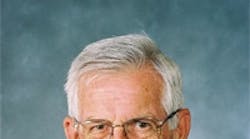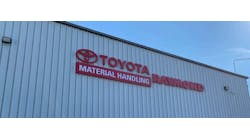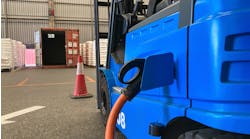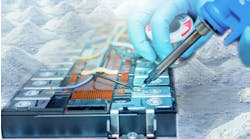Geoffrey Ballard, a Canadian pioneer of the fuelcell industry and an entrepreneur Time magazine once named a “Hero of the Planet,” died on Aug. 2. He was 76. The cause of death was not disclosed.
Ballard developed the world’s first hydrogen-fuel-cellpowered, zero-emission transit bus. Science World, a science center in Vancouver, British Columbia, unveiled the vehicle in 1993.
In 1979, Ballard co-founded Ballard Power Systems Inc., which makes hydrogen fuel cells that are used in material handling, residential co-generation, backup power and transportation. His vision was to create an alternative, non-polluting source of energy, and he helped create the company to develop lithium batteries and portable power devices. He served as chairman of the company until 1997.
In 1999, he started General Hydrogen, which was bought by Plug Power Inc. last year for $10 million.
Born in Niagara Falls, Ontario, on Oct. 16, 1932, Ballard was a geophysicist with a bachelor’s degree in engineering from Ontario’s Queens University and a doctorate degree in geophysics from Washington University in Missouri.
He has been acknowledged throughout the world as the father of the fuel-cell industry and received numerous international awards and honorary degrees from six Canadian universities. He served as chair of the Canadian Hydrogen Association as well as an advisory board member for the Institute of Transportation Studies at the University of California.
“His name will forever be associated with this company’s fuel-cell products, which are being deployed as an energy source for applications in a growing number of important global markets,” John Sheridan, Ballard’s president and CEO, said in statement.
In 1999, Time magazine named Ballard one of its “Heroes of the Planet,” alongside the environmental work of Robert F. Kennedy Jr. and his partner John Cronin. In the article, Ballard called skeptics of his fuel-cell vision “piston heads” and said the company was decades away from making alternative-energy cars affordable.
In his early career, Ballard worked for Mobil Oil and the U.S. Army before reportedly opening a restaurant to fund his research in rechargeable battery technology.



